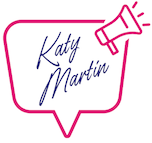
3 Types of Job Interview Questions You Must Ask Candidates
When interviewing potential employees, employers use a variety of questions to assess the candidate’s skills, experience, and knowledge. These questions can be broken down into three main categories: open-ended, behavioral, and situational. Understanding the different types of interview questions and when to use them can help ensure that you get the most accurate assessment of the candidate’s qualifications.
In this blog post, we’ll explore the different types of interview questions and offer some examples of each question type.
Open-Ended Questions
Asking open-ended questions during an interview gives the applicant a chance to demonstrate their communication skills and offer more detail about themselves. It also helps hiring managers get to know the candidate better and assess how they would fit into the team.
Examples of open-ended questions include:
What motivates you?
What do you consider to be your greatest strengths?
How do you handle criticism or feedback?
What do you know about our company, industry, and/or position?
Describe your ideal job.
What inspired you to pursue a career in this field?
What do you think makes you uniquely qualified for this role?

Behavioral Questions
Behavioral questions show a candidate’s aptitude and approach to a task, based on past experience. They are useful for revealing soft skills like trustworthiness, attitude, and work ethic.
Examples of behavioral questions:
Can you tell me about a time when you had to take the initiative to get a project completed?
Describe a time when you identified and resolved a problem before it became an issue.
What have you done to ensure a successful team project?
Describe a situation where you worked with someone who wasn’t pulling their weight. How did you handle it?
Tell me about a time when you had to explain something complex to someone else.
Can you describe a difficult customer interaction and how you handled it?
What was the most challenging project you’ve ever worked on, and how did you approach it?
By asking these types of questions, you can better understand the candidate’s capacity to work on teams, problem-solve, handle difficult situations, and take initiative. This insight can help you make a more informed hiring decision.
Situational Questions
Asking situational questions will help you gain insight into how a candidate will handle challenging scenarios in the workplace. It’s important to remember that there are no right or wrong answers – what matters is how the candidate chooses to respond.
Examples of situational questions:
How would you handle a customer who is not satisfied with the product or service you provide?
What would you do if a coworker was not completing their tasks on time?
What would you do if you found out that a colleague was taking part in unethical behavior?
How would you handle a difficult client or customer?
If you had a disagreement with a colleague, how would you address it?
What steps would you take to improve productivity in the workplace?
This type of question allows the candidate to demonstrate their problem-solving skills and creative thinking abilities. Ultimately, this can give you a better understanding of how the candidate would perform in their role.
Need More Tips on Setting Up Your Interviews?
If you are in need of more advice to set up the most effective interviews for your job candidates, look no further than Katy Martin, an expert with over a decade of mastering her recruiting and hiring skills. Book your call with Katy now!

3 Types of Job Interview Questions You Must Ask Candidates
When interviewing potential employees, employers use a variety of questions to assess the candidate’s skills, experience, and knowledge. These questions can be broken down into three main categories: open-ended, behavioral, and situational. Understanding the different types of interview questions and when to use them can help ensure that you get the most accurate assessment of the candidate’s qualifications.
In this blog post, we’ll explore the different types of interview questions and offer some examples of each question type.
Open-Ended Questions
Asking open-ended questions during an interview gives the applicant a chance to demonstrate their communication skills and offer more detail about themselves. It also helps hiring managers get to know the candidate better and assess how they would fit into the team.
Examples of open-ended questions include:
What motivates you?
What do you consider to be your greatest strengths?
How do you handle criticism or feedback?
What do you know about our company, industry, and/or position?
Describe your ideal job.
What inspired you to pursue a career in this field?
What do you think makes you uniquely qualified for this role?

Behavioral Questions
Behavioral questions show a candidate’s aptitude and approach to a task, based on past experience. They are useful for revealing soft skills like trustworthiness, attitude, and work ethic.
Examples of behavioral questions:
Can you tell me about a time when you had to take the initiative to get a project completed?
Describe a time when you identified and resolved a problem before it became an issue.
What have you done to ensure a successful team project?
Describe a situation where you worked with someone who wasn’t pulling their weight. How did you handle it?
Tell me about a time when you had to explain something complex to someone else.
Can you describe a difficult customer interaction and how you handled it?
What was the most challenging project you’ve ever worked on, and how did you approach it?
By asking these types of questions, you can better understand the candidate’s capacity to work on teams, problem-solve, handle difficult situations, and take initiative. This insight can help you make a more informed hiring decision.
Situational Questions
Asking situational questions will help you gain insight into how a candidate will handle challenging scenarios in the workplace. It’s important to remember that there are no right or wrong answers – what matters is how the candidate chooses to respond.
Examples of situational questions:
How would you handle a customer who is not satisfied with the product or service you provide?
What would you do if a coworker was not completing their tasks on time?
What would you do if you found out that a colleague was taking part in unethical behavior?
How would you handle a difficult client or customer?
If you had a disagreement with a colleague, how would you address it?
What steps would you take to improve productivity in the workplace?
This type of question allows the candidate to demonstrate their problem-solving skills and creative thinking abilities. Ultimately, this can give you a better understanding of how the candidate would perform in their role.
Need More Tips on Setting Up Your Interviews?
If you are in need of more advice to set up the most effective interviews for your job candidates, look no further than Katy Martin, an expert with over a decade of mastering her recruiting and hiring skills. Book your call with Katy now!
Join Our Newsletter
PROGRAMS | ASSESSMENTS | BLOG | CONTACT | COURSE LOGIN | PRIVACY
Copyright © 2022 | Martin Coaching and Consulting, LLC Powered by 99 Creatives
Join Our Newsletter

Martin Coaching and Consulting, LLC is committed to protecting and respecting your privacy, and your information will not be disclosed to third parties, unless required by law. By submitting my information, I consent to receive other communications from Martin Coaching and Consulting, LLC






